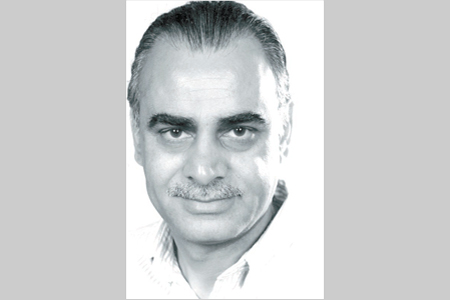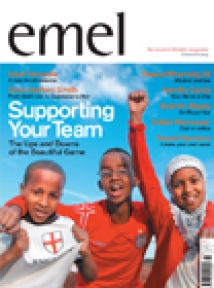
Humans and Muslims
Issue 6 Jun / Jul 2004
First Published on July/August 2004
To access the issue page, click here
As Seymour Hersh reported in the New Yorker, the Americans used the services of an old Orientalist to devise tortures that were particularly humiliating to Muslims and specially designed to dehumanise them in their own eyes.
How was it for you? How did you feel when you saw those dreadful pictures from Abu Ghraib prison?
I can tell you exactly how I felt. What I thought, when I saw the anonymous hooded man standing on a box, wires dangling from his stretched arms, as though he was being crucified; when my eyes encountered the sight of US Private Lynndie England pulling a naked, semi-conscious prisoner on a dog-leash; when I gazed at an image of a human pyramid of naked prisoners being lorded over by grinning Americans. These people are not anonymous. They are me. I am every one of these individuals being tormented in these photographs. Their humiliation, their degradation, their torture, their suffering is my humiliation, my degradation, my torture and my suffering.
I feel like that not simply because I am a human being, but also because I am a Muslim. As a Muslim I have a special connection to these victims, personified by the notion of the ummah. The prisoners of Abu Ghraib are not just my brothers and sisters, they are an integral part of me – the very essence of my being. “The believers,” the Prophet Muhammad said,“are like a human body: when one part hurts, the entire body suffers.” This is the true meaning of ummah: this is why I don’t just identify with these prisoners; I see them as myself.
There is one photograph in the portfolio of ‘Iraq Abuse Scandal’ that is truly iconic. A naked prisoner, his hands behind his head, his legs crossed, his back arched, stands in front of a prison door. He is being set upon by a vicious dog. The dog handler is urging the beast to attack. Another guard has another dog on a leash. Everything is moving and you cannot see anyone’s face, not even of the attacking dog. But the prisoner is motionless; you can read the terror on his face. But you can read something else: he is the only true human being in the photograph.
For me, that’s what it is all about. All the conflicts we Muslims are now involved in are about preserving our humanity. The prisoner in the photograph has retained his humanity and is therefore victorious. In contrast, the grinning young American men and women in the Abu Ghraib photographs, who think it is fun to torture people in the name of freedom and democracy, are barely human. They come from a system that has almost lost its humanity.
So, what did I feel about the beheadings of Nick Berg and Paul Johnson, who by all accounts were innocent young Americans? What did I think when the psychopaths who executed them shouted ‘Allahu Akbar’? That was me too! Every one of those involved in this barbarity is also part of my being. Their inhumanity has a direct bearing on my humanity. Their representation of Islam and their actions in the name of Islam concerns me as much as American brutalities in Iraq. And they too are part of the ummah and delineate its meaning: the cancer in one part of the body kills the whole body.
If we can only resist inhumanity with inhumanity then there is nothing really worth fighting for. If Muslim behaviour is as brutal and dehumanised as those of the Americans, than what is the difference? And once someone has degenerated to the level of a wild beast, does it matter whether he is a Muslim or not?
We are human beings before we are Muslims. But there is a difference between being simply a human being and being a Muslim. A human can, and sometime does, forget that he or she is human. A Muslim on the other hand has to constantly remember that he or she is a servant of God; it is a conscious decision. To keep this idea foremost in our mind is why we are always praying, fasting and dispensing our hard earned cash in charity. The spirit of Islam is expressed through our humanity and by demonstrating what it means to be human. This is what the Prophet has taught me. What has he taught you?
Bookmark this |
|
Add to DIGG |
|
Add to del.icio.us |
|
Stumble this |
|
Share on Facebook |
|
Share this |
|
Send to a Friend |
|
Link to this |
|
Printer Friendly |
|
Print in plain text |
|


Comments
0 Comments